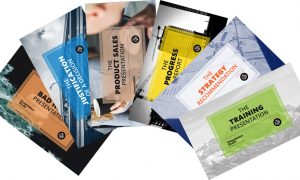3 Simple Tricks I Learned from Giving the Most Important Speech of My Life


Scared Speechless is the story of how an ordinary guy, Roy Rosell, overcame his crippling fear of public speaking. In this article, Roy shares with us the 3 tricks he learnt along the way that allowed him to master his fear and hesitation, and become the self-proclaimed lover of public speaking that he is today.
I sat on stage, looking out into the abyss of black gowns, proud parents and aloof expressions of students who couldn’t care less. Some were graduates a lot smarter than me. Others felt they should be giving this speech. Some of their parents were appalled at the size of my hair. And then there were my friends and family, all of whom expected one hell of a show.
Wow…this is it. God help me now…
It was the 2013 College of Business commencement ceremony at Cal Poly Pomona. I had been selected as the President’s Scholar and the “honor” of presenting at the ceremony had been bestowed upon me. The Dean would introduce me for another 30 seconds; I’d walk up to the microphone, stare out into the crowd of 15,000 eager, emotional and disengaged eyes and deliver a speech. It was the speech that I had never, not even in my wildest dreams, imagined I’d ever be capable of: the presentation that, after 12 years of despair, tears and trashed opportunities due to my fear of public speaking, would end either in glorious victory or in complete disgrace.
A recurring nightmare I’d had for the 12 years up to that moment was of me standing in front of a large audience, opening my mouth and vocalizing nothing more than a barely audible squeak. My reaction to this nightmare was always the same: I’d drop to the floor in a fetal position, shut my eyes and pray for the dream to end.
But this time, the price of cowering was too steep, and the crowd was larger than the measly 5,000 I’d dreamed of. As the Dean continued with my introduction, I recalled the way I’d die inside with each nonsensical word I’d muttered in front of 20 classmates. I remembered the sleepless nights before presentations, where I’d spend hours staring up at my bedroom ceiling, contemplating the terrors that awaited me. I replayed the countless botched presentations and the times I found myself hovering over foul-smelling toilets with nerves-induced nausea; all just moments before the most important speech of my life.
Then, I walked to the stand, smiled, and delivered a speech to 15,000. It was the culmination of 12 years of suffering, crying, ditching, dying at the hands of glossophobia, and three months of doing everything in my power to overcome my fear. In the end, I succeeded. This was the result:
All my life, I’ve bounced around what I like to call the Public Speaking Fear Scale. Between the time I started going to school (kindergarten) and up until the fifth grade, I would take any opportunity to be presenting on stage. On the Fear Scale, I’d say I was at about a two. My love for public speaking died in the fifth grade, beaten to a pulp by an invader named Fear as I presented in front of a class of 25, most of whom were making fun of my weight. On that fateful day, the happy, carefree Roy perished, and the chronically stressed, anxious, risk-averse Roy was born. From that moment, until the last few months of college, my fear hovered between an eight and a ten on the Fear Scale. Here’s the scale, for your reference:
FEAR SCALE (Public Speaking)
1-3 – Low Level of Healthy Fear
The idea of giving a presentation makes your heart race, but the feeling upon learning of an impending speech is anticipation. Having this range of fear is the least stressful, but it is not the optimal level to ignite top performances.
4-6 – Moderate Level of Healthy Fear
Like a thrill-seeker waiting in line to bungee jump, presentations make you nervous, but in the best way possible. The lower end of this range is the prime level of fear for giving speeches.
7-8 – High Level of Unhealthy Fear
This is the anxiety associated with waiting for results of an STD test after a regret-filled weekend in Vegas. The stress presentations cause you has a negative impact on your prep and other factors in your life.
9 – Dread
You look for any excuse to avoid public speaking even if it means failing in class or missing out on opportunities. For speaking assignments you can’t miss, getting back to your seat as quickly as possible is your main goal.
10 – Scared Speechless
Line up a clean podium and a kiddie pool filled with brown recluse spiders side by side and you’ll be in that pool within a second. This level of fear causes health problems, negatively affects your relationships and sets you up to squander opportunities.
My three-month journey (the three months before my commencement speech) to learn to control my place on the fear scale is a process I outline in excruciating detail in my book, Scared Speechless: My Crazy Journey to Mastering Fear. But here are three strategies I implemented in those three months that not only gave me the power to finally do what was necessary to reduce my fear; they also catapulted me from the depths of public speaking hell, to become a lover of public speaking.
Learn to “Count to three”
Before every big decision, whether it’s starting a diet plan, or making a pact to do whatever is necessary to overcome a barrier, two things happen in our brains. The first is excitement—we think of how awesome our lives would be if we follow through and achieve our goal. The second is doubt.
What if I fail?
I’m tired and have a headache…
I won’t be able to watch Westworld every night!
We are masters at talking ourselves out of things that will improve us. We always have been. We consider, reconsider, justify, question, assess, reassess, and eventually, allow opportunities to pass us by. It’s what I did for 12 years in my battle to overcome my fear of public speaking. I knew what I had to do, but I kept talking myself out of doing the tough stuff.
But in the three months before my graduation speech, I did one thing that allowed me to minimize time spent in the detrimental ‘doubt stage’ of decision making: I learned to count to three.
When you take too long to make a decision, whether it’s booking that trip you’ve been obsessively talking about for God-knows-how-long, or signing up to conduct a presentation at a local Toastmasters club, your mind starts producing rapid-fire justifications as to why you shouldn’t do it and, more often than not, you listen. To bypass this doubt and justification stage, you have to act quickly. So, count to three, then set your decision in stone.
Understand that your decision is not conditional. It doesn’t rely on how busy your schedule becomes, how you’re feeling later, or if something ‘more important’. Your decision is final. It is an unbreakable pact to yourself, and your future self, signed in blood, promising that you will accomplish what you’ve decided to accomplish.
So next time you think: ‘You know what, I think I’m going to take that trip I’ve been talking about,’ count to three, and lock in your decision. Book the nonrefundable flight and deal with the details later. Or, when you decided you’re sick and tired of feeling like Courage the Cowardly Dog every time you step on a stage, count to three and start sending out emails to your professors, bosses, local toastmasters clubs, city councils officials, local libraries, etc., and start offering yourself as a speaker.
Build momentum
My journey to learning to control my fear had two parts. The first part lasted just shy of twelve years. During those years, I conducted speeches, read self-help books, watched videos that would help me ‘overcome fear in three easy steps!’ I cried, lied, and tried my way through my struggle to overcome fear, but never made lasting progress.
The second part lasted just three months, where I made an action plan, then acted on it daily. These three months, started with an opportunity.
“Hello, may I speak to Roy?”
Yes, Roy here!
It was the office of the Dean of the College of Business at Cal Poly Pomona on the phone. Dread seeped in, a malevolent fog. I’d spent my five years at Cal Poly fabricating medical emergencies on speech days and bribing professors to boost my grades – so I braced for the worst.
“Is this a good time?”
I coughed, nearly choking on the thick saliva clogging my throat. Just say it! I thought. Just put me out of my damn misery! I started to imagine the possibilities: They have footage of me cheating on a final exam? They realized I didn’t really have a cold, pneumonia, chickenpox, mononucleosis, or gastroenteritis all those times I skipped classes on presentation days?
“The College of Business and the President of Cal Poly have voted you as the President’s Scholar for the 2013 graduating. Congrats! Also, we need you to give the presentation…”
Click!
I flung my phone across my room. From Cloud Nine to the depths of hell in a sentence.
I can’t even speak in front of a classroom…how can I do it in front of a quad?
I decided to blame faulty reception for the dropped call, ask when graduation was, then inform the Dean that I’d be in Argentina visiting family during that time. Then, the phone rang. I picked it up, and before I could begin my reasoning, I muttered two words: I’m in.
After that decision, two things could have happened:
- I’d feel motivated, but as the days passed, doubt would quickly kill that motivation.
- I’d feel motivated, but as the days passed, I’d keep doing things to kill my doubt and keep my motivation alive.
Shockingly, I went with option two. I followed this success, with consecutive small successes. I went against my doubt’s suggestions, and decided to find every situation I could, however miniscule, to injure my fear (talking to someone in an elevator instead of standing in awkward silence, for instance) everyday until speech day. As a result, I felt a tremendous level of excitement on stage that fateful day.
Redefine what a ‘speech’ is
Fear is created in your mind. It lives, feasts, and grows in your mind. It gains power, becomes more convincing, and wreaks havoc – All. In. Your. Mind. What I’m trying to get at is, the way you view your fear, your potential, that speech you have to give on Tuesday morning to your ____ (negative adjective) bosses, will dictate your future, and your success at giving speeches.
We all have the ability to conduct captivating presentations, but many people don’t ever get to that level. A lot of that has to do with our tendency to focus on the self when we prepare for a speech, as opposed to the audience. When we’re caught up with the terror of giving a speech, we become flooded with thoughts of what can go wrong and what we can do to appear as calm as possible. Then, we think of the potential negative outcomes: “If I don’t nail this, I won’t get that promotion…” Lastly, we focus our efforts on calming down, reducing our nerves, and ignoring the feeling of our stomach eating itself from the inside.
Nowhere in that equation does the audience’s interests come into consideration. All that time spent on calming yourself down and worrying about the negative outcomes leaves you no time to think about the audience’s desires. Do they want to have fun? Be entertained? Learn something new? You must realize that safety from humiliation on stage isn’t found in blandness, obsessively reciting factual information or containing ourselves on stage – it’s found in being exceptional. And to be exceptional, you must focus on what the audience wants.
If you have no clue what the audience is looking for in a speech, the safest bet is this: they want to be entertained. Whether it’s a new product demonstration to disinterested sales associates, a speech on accounting principles to hungover college students, or just a quick toast at a wedding, keep this in mind: everyone appreciates an entertaining speech. So, don’t be afraid to be funny, tell a story, and interact with your audience.
Fear, when controlled, is a wonderful, motivating and thrilling thing. When managed, fear is a gift. Yes, it’s a gift that comes with an awful instruction manual and requires diligence, creativity and persistence to get it to where you need it to be. But once you dedicate yourself to putting in the work, it will be one of the greatest gifts you’ll ever receive.












John Zimmer
20th June 2018 at 10:18 am
Good job, Roy! It looks like you were enjoying yourself up there and that is a big step when it comes to delivering your speech or presentation well.
Your 1-2-3 philosophy of decision-making reminds me of something Richard Branson said. If you are offered a great opportunity but have no idea how you will be able to do it, say yes and than figure it out!
Good luck with your speaking journey.
John